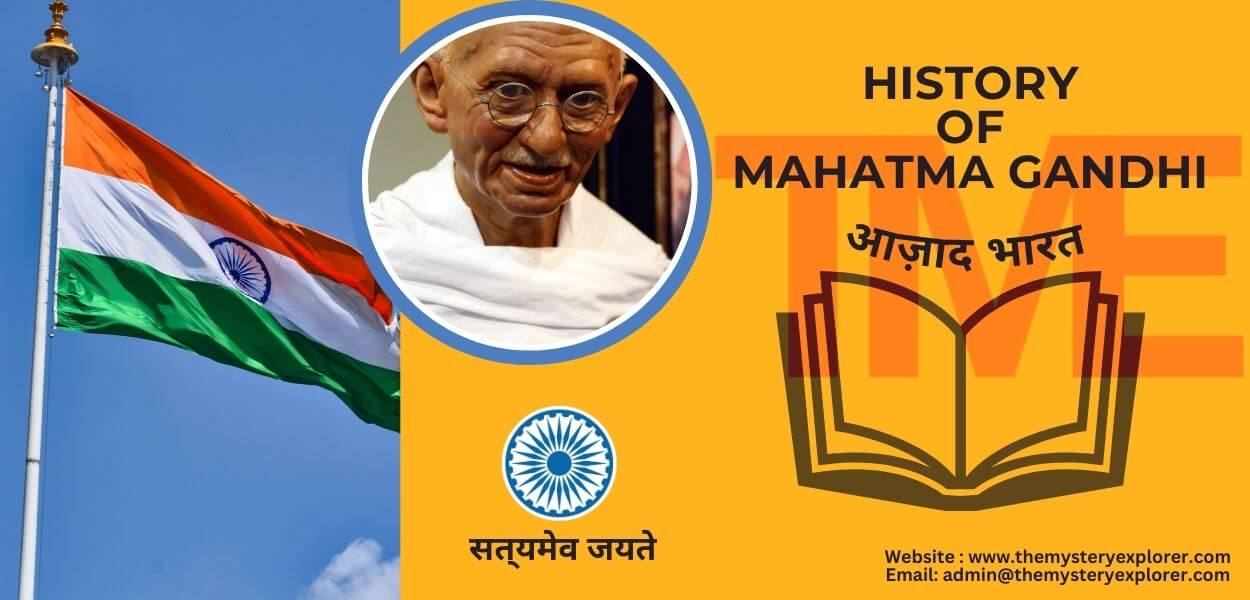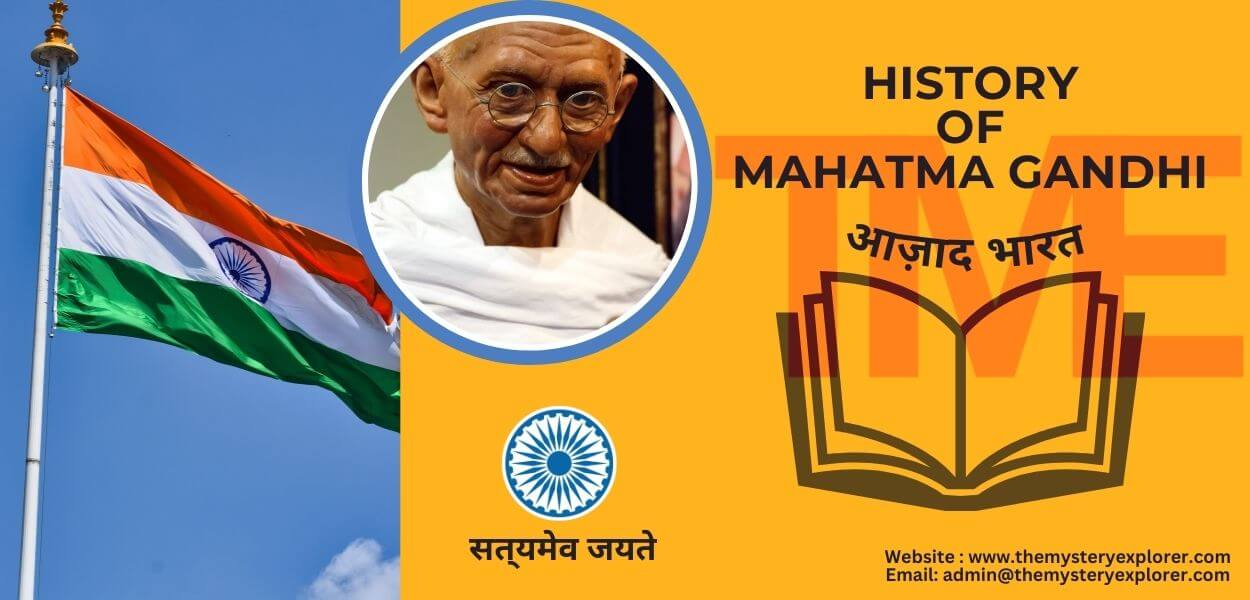Mahatma Gandhi also known as Bapu or Father of the Nation of India. But not everyone knows the history of Mahatma Gandhi. The history of Mahatma Gandhi has been present on the Internet, but due to lack of time, readers are not able to read big blogs. We have tried to give you information about the history of Mahatma Gandhi in short words.

Gandhi’s life and work are examined (History of Mahatma Gandhi)
Mahatma Gandhi was born on October 2, 1869, in the city of Porbandar in what is now Gujarat, India. He became a leader in India’s struggle for independence from British rule and is considered one of the most influential political figures in the history of the country.
Gandhi’s early years were difficult. He was born into a poor Hindu family and grew up in a time of great social and political turmoil in India. In 1891, he married Kasturba Gandhi, with whom he had two sons.
In 1894, Gandhi began working as a lawyer. He became involved in the struggle for Indian independence from British rule and in 1915, he was arrested and imprisoned for six years.
During his imprisonment, Gandhi developed his philosophy of nonviolent resistance. This philosophy relied on the belief that peaceful protests and civil disobedience could achieve change in an oppressive society.
In 1919, Gandhi was released from prison and began the process of creating an independent India
His philosophy and methods of nonviolent resistance are explored
His philosophy and methods of nonviolent resistance have been extremely influential, not only in India, but around the world. Gandhi was a firm believer in the power of nonviolent resistance, or satyagraha, as he called it. He believed that through satyagraha, people could resist tyranny and oppression without resorting to violence.
Gandhi’s methods of satyagraha were put to the test during India’s struggle for independence from British rule. He led a series of mass protests and hunger strikes against the British authorities, ultimately helping to bring about India’s independence in 1947.
His impact on world history is examined
In 1814, Napoleon was exiled to the island of Elba off the coast of Italy. In March 1815, he escaped Elba and returned to France, raising an army as he went. The British and Prussian armies confronted Napoleon at the Battle of Waterloo in June 1815. Napoleon was defeated, and he was exiled to the island of Saint Helena, where he died in 1821.
Napoleon’s impact on world history is significant. He was a brilliant military strategist and innovative thinker. He reformed the French government and society, and he helped spread the ideals of the French Revolution throughout Europe. His military campaigns changed the map of Europe, and his defeat marked the end of the Napoleonic era.
The legacy of Gandhi is evaluated
Mahatma Gandhi was a revolutionary figure in the history of India. His legacy is still being evaluated. Gandhi is best known for his role in the Indian independence movement, in which he advocated for the peaceful resolution of disputes between Indians and British authorities. His efforts helped lead to the independence of India in 1947. Gandhi was also a religious leader, and his philosophy of nonviolent resistance helped bring about social change in India. His legacy is still being evaluated, but it is clear that he was a major figure in the history of India.
Mahatma Gandhi death 1948
On 30 January 1948 Mahatma Gandhi was killed by Nathuram Vinayak Godse in the compound of Birla House which is now known as Gandhi Smriti. Police arrested Nathuram and 7 other people found guilty. After many trial court fout Nathuram and 6 other guilty. Only Vinayak Damodar Savarkar (former member of Rashtriya Swayamsevak Sangh) found not guilty. Nathuram Godse and Narayan Apte were sentenced to death by hanging and the remaining six (including Godse’s brother, Gopal) were sentenced to life imprisonment.JJ
To join us Click here
